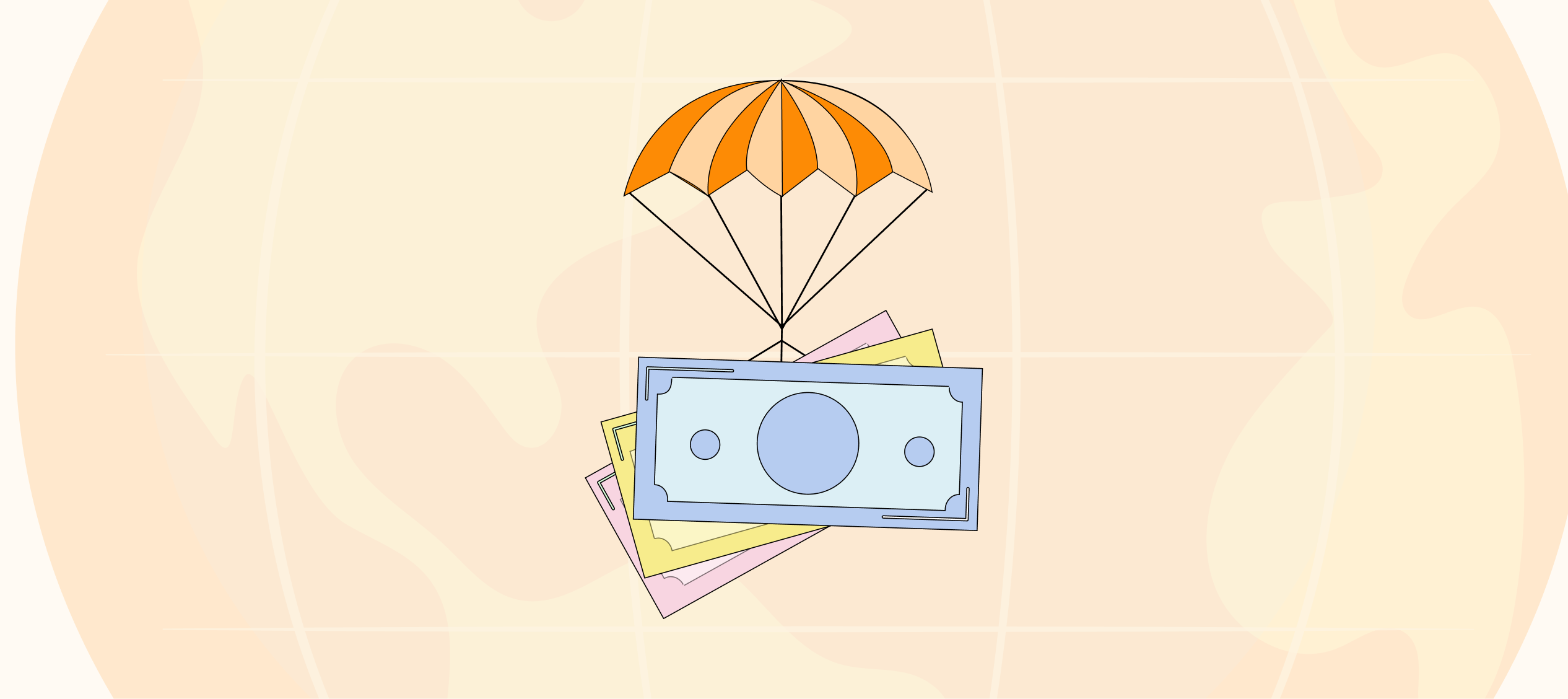Living abroad opens up a world of adventure, cultural discovery, and new opportunities, but it also comes with unique financial uncertainties. The Coronavirus pandemic of 2020 was a stark reminder of why building an emergency fund when living abroad is essential. Many expatriates faced sudden job losses and contract terminations.
Even if your job feels secure today, life abroad has its share of surprises that can range from changes in immigration rules to medical emergencies or even global crises. That’s why building an emergency fund should be at the core of your financial plan.
An emergency fund is simply money you intentionally set aside to cover unexpected expenses or to sustain yourself in times of crisis. Think of it as your personal financial safety net, the money you hope never to touch but will be deeply grateful for when life throws you off balance. It usually comes in handy when covering living expenses during a job gap, handling medical bills, or dealing with sudden relocation costs. This financial cushion ensures you stay afloat without stress.
Building an emergency fund when living abroad, you give yourself peace of mind and the ability to face uncertainty with confidence.
What Is The Importance of Building an Emergency Fund When Living Abroad?
1. Peace of Mind
Living in a foreign country can already be overwhelming, navigating a new culture, adapting to new systems, and managing your finances in another currency. The last thing you want is the added anxiety of not knowing how you’ll cope if something unexpected happens. Having money set aside brings peace of mind. If your job contract ends earlier than planned, or if you suddenly need to travel home, you won’t be caught unprepared. This sense of security lowers stress levels, allowing you to make thoughtful, rational decisions about your next steps.
2. Reduced Stress in Times of Crisis
Financial instability is one of the biggest stress triggers, especially for expats who may not have the same support network they would at home. Once you’ve prioritized building an emergency fund when living abroad, you can face unexpected situations without panicking about money. Instead of scrambling to borrow, liquidate assets, or rely on costly credit, you’ll have the resources to handle the issue at hand. This reduces the emotional toll of financial setbacks and helps preserve your mental health, enabling you to focus on solving problems instead of worrying about your bank balance.
3. A Strong Sense of Security
An emergency fund acts as your financial cushion, giving you the ability to maintain stability even without a steady income for a while. Imagine losing your job and being told you have 30 days to leave your host country or facing high medical bills in a healthcare system where you’re not fully insured. With an emergency fund, you can continue to pay your rent, cover living expenses, and even finance relocation costs without jeopardizing your future. It gives you the breathing space you need to find a new role, explore alternative income sources, or make major decisions without rushing.
4. Preparing for the Unexpected
The COVID-19 pandemic was a powerful reminder of just how unpredictable life can be. Many expatriates faced sudden layoffs, contract suspensions, and border closures that disrupted their plans. For those who had prioritized building an emergency fund when living abroad, the crisis was more manageable; they had the buffer to ride out uncertainty. But for others, the lack of a safety net meant financial and emotional strain. While pandemics are rare, other unexpected events such as visa changes, accidents, or family emergencies can happen at any time.
How Much Should You Save When Building an Emergency Fund?
Everyone’s financial situation is unique, so the amount you need to put aside for an emergency fund will depend on your circumstances. That said, there’s a widely accepted rule of thumb: aim to save 3–6 months’ worth of living expenses. Here’s how to think about it:
1. Start with the Basics
Calculate how much you actually spend each month on essential costs like rent, utilities, food, transportation, and healthcare, instead of focusing on just your salary. Multiply that by 3–6 months, and you’ll have a realistic savings target for your emergency fund.
2. Consider Your Monthly Obligations
If you have a large mortgage or fixed payments you can’t pause, you’ll need a bigger cushion. These commitments don’t go away in times of crisis, so factor them in carefully when calculating your emergency savings goal.
3. Factor In Your Income Structure
When saving, you will factor in the structure of your household. For a single-income household, you’ll want a larger emergency fund to cover the risk of losing your only source of money, and for dual-income households, you might be able to get by with a smaller fund. Still, remember that unexpected job loss or illness can affect either partner.
4. Account for Lifestyle and Dependents
If you’re living abroad with children, have education fees, or send regular remittances home, your emergency fund should be larger to reflect those additional responsibilities. On the other hand, if you have fewer obligations, your fund can be leaner.
5. Think About Life Abroad Risks
When building an emergency fund when living abroad, don’t forget extra factors: visa restrictions, potential relocation costs, or higher medical expenses if you’re in a country without accessible healthcare. These unique risks mean expats often need to save on the higher end of the 3–6 month range.
Where to keep your emergency savings
When it comes to building an emergency fund when living abroad, one of the most important decisions you’ll make is where to keep your savings. The goal is to have your funds easily accessible in times of crisis, without being so easy to touch that you’re tempted to dip into them unnecessarily.
Here are some smart options to consider:
1. Avoid Keeping It in Cash
While it may feel reassuring to have cash on hand, it’s not a practical choice for an emergency fund. Cash can be lost, stolen, or eroded by inflation. Your money should be in a safe place where it can also earn interest.
2. Use a Dedicated Savings Account
A separate savings account is a good option because it helps reduce the temptation of mixing your emergency fund with your everyday spending money. Be sure to check for any withdrawal restrictions or penalties. Some accounts may require 30 days’ notice to access funds, something to think about when weighing flexibility versus higher returns.
3. Prioritize Instant Access
While instant-access accounts often offer lower interest rates, they provide the greatest flexibility in case of sudden emergencies. You want to be able to withdraw your funds without delays when life throws the unexpected at you. Saving in a stable currency like the US dollar is a smart move. Accrue, a cross-border payments app, allows you to save in dollars and earn up to 7% per annum on your emergency fund. This gives you both accessibility and growth, while also protecting your savings against local currency fluctuations. Plus, since your emergency fund is meant to be a safety net, earning interest while it sits untouched is an added advantage.
When to use your emergency savings
It may sound obvious, but your emergency fund should only be used for true emergencies, things like covering expenses between jobs, paying for unexpected medical bills, handling urgent property repairs while waiting for insurance, or financing an unplanned trip back home for family reasons.
For everything else, rely on your regular savings and budget planning. That’s why, while you’re focused on building an emergency fund, it’s equally important to set aside money for everyday goals and predictable expenses. This way, you won’t be tempted to dip into your safety net for non-emergencies.

MORE FROM ACCRUE
Smart Money Moves to Make in Your 20s and 30s
Financial Checklist for Africans Moving Abroad
50/30/20 Rule: Is It Practical for Africans?
5 kinds of people that would definitely have a broke January
How You Can Build Wealth from $100/Month

I’ve lived many lives, but one lesson ties them all together: money is only as powerful as its utility. Through my work, I share stories about money and create guides for Africans who want to get the best out of theirs.
